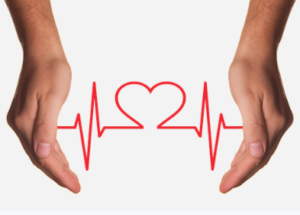Compound found in deadly algae could aid stroke recovery
Compound found in deadly algae could aid stroke recovery
 A compound produced naturally by marine algae stimulated nerve cell growth and plasticity in cultured mouse neurons could be used for stroke treatment in humans, researchers believe. The compound known as brevetoxin-2 could present a new pharmacological treatment that may aid brain function for those who have suffered a stroke or traumatic brain injury.
A compound produced naturally by marine algae stimulated nerve cell growth and plasticity in cultured mouse neurons could be used for stroke treatment in humans, researchers believe. The compound known as brevetoxin-2 could present a new pharmacological treatment that may aid brain function for those who have suffered a stroke or traumatic brain injury.
 Brevetoxin found in red tide algae could lead to stroke treatment
Brevetoxin found in red tide algae could lead to stroke treatment
Although drugs can be administered as stroke occurs to attempt to breakup blood clots, there is currently no drug treatment for post-stroke rehabilitation.
Participating researchers from Creighton University School of Medicine in Omaha, Nebraska, the University of North Carolina Wilmington and Scripps Institution of Oceanography published their findings a few weeks ago in the online edition of the journal Proceedings of the National Academy of Sciences (PNAS).
Brevetoxin
Brevetoxin is produced by the tiny marine algae dinoflagellate Karenia brevis. In high concentrations, brevetoxin causes the algae blooms known as red tides, a nerotoxin-laden tide that causes respiratory irritation in humans and central nervous system paralysis in fish. Given its effects, it may seem surprising that it could have any health benefits.
During a stroke, a clot cuts off blood flow to an area of the brain. The dead tissue can’t be revived, but the brain can be trained to redirect nerve impulses to surrounding living nerve cells.
Brevotoxin’s effects combined with recent scientific studies that show rewiring nerve cells in the brain following a stroke occurs as a result of heightened plasticity around the brain’s damaged cerebral cortex. The cerebral cortex is the area responsible for sensory and cognitive nervous system functions.
Plasticity of the brain
Brain plasticity is the capacity of the nervous system to change its structure and its function over a lifetime in reaction to environmental diversity. This plasticity is what allows working parts of the brain to take over functions normally performed by those damaged during a stroke.
Thomas F. Murray is the Ph.D. associate vice president for Health Science Research and professor and chair of the Department of Pharmacology at the Creighton School of Medicine. In a press release, he said, “Our research suggests that compounds like brevotoxin-2 can augment neuronal plasticity potentially providing a neural repair therapy for stroke recovery. If that outcome can be supported by further studies in animals and subsequently humans, it could have a profound impact on a currently non-treatable condition.”
Physicians Choice Private Duty currently serving Omaha, Eastern Nebraska and Western Iowa provides seniors and their families a complete understanding of the available care options and helps families maneuver through the challenges of the system. All Physicians Choice Private Duty services are directed by registered nurses or social workers with no long-term contracts. Contact us today for help with your senior care needs.
“Physicians Choice Private Duty solves the problems families face in finding home health care providers they can trust. Providers who will focus on strategies that keep parents in their homes. To learn more about our health care services, visit https://private-duty.pchhc.com/services/.”


